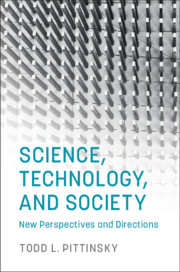Understanding Technology and Society
From the early days of navigating the world with bare hands to harnessing tools that transformed stones and sticks, human ingenuity has birthed science and technology. As societies expanded, the complexity of our tools grew, raising a crucial question: do we control them, or do they dictate our fate? The trajectory of science and technology isn't predetermined; debates and choices shape it. It's our responsibility to navigate wisely, ensuring technology betters, not worsens, our world. This book explores the complex nature of this relationship, with 18 chapters posing and discussing a compelling 'big question.' Topics discussed include technology's influence on child development, big data, algorithms, democracy, happiness, the interplay of sex, gender, and science in its development, international development efforts, robot consciousness, and the future of human labour in an automated world. Think critically. Take a stand. With societal acceleration mirroring technological pace, the challenge is: can we keep up?
- Attractive 'Big questions' format
- Accessible language to engage non-experts
- Mix of fundamental topics with timely ones: Connects the field of STS to science, technology and society topics being discussed in the popular media
Product details
March 2025Paperback
9781009069878
254 pages
216 × 140 mm
Not yet published - available from March 2025
Table of Contents
- Introduction
- 1. Which disciplines are concerned with the intersections of science, technology, and society? What are some of their core contributions?
- 2. Do science and technology shape society or does society shape science and technology?
- 3. Where do scientific and technological innovation come from? Can innovation be deliberately promoted or do we just have to wait for the light bulbs to go off?
- 4. When and how do new technologies spread through society? Why do some die on the vine?
- 5. What can we learn by comparing the combination of science, technology, and society in different parts of the world and at different times in history?
- 6. Can technology be inherently good or bad for society, or is that a matter of what we do with it?
- 7. How can one be a savvy consumer of increasingly complex scientific research?
- 8. Do children develop differently in a digitally saturated world? Is digital technology helping children thrive-or stunting them?
- 9. What is 'big data' and why does it make such a big difference?
- 10. Do algorithms make wise and fair decisions?
- 11. Are new technologies beneficial to liberal democracy and good governance-or wreaking havoc on them?
- 12. Does technological progress make people happier?
- 13. What has the relationship between sex and gender and science and technology been-and what might it be?
- 14. What are digital divides and why do they matter?
- 15. How do science and technology impact international development, and how might they lead to a more sustainable global community?
- 16. Will AI be conscious?
- 17. Will the AI robot economy be a golden age or a dystopian era?
- 18. Will AI create great art? Appendix: A note on format.









